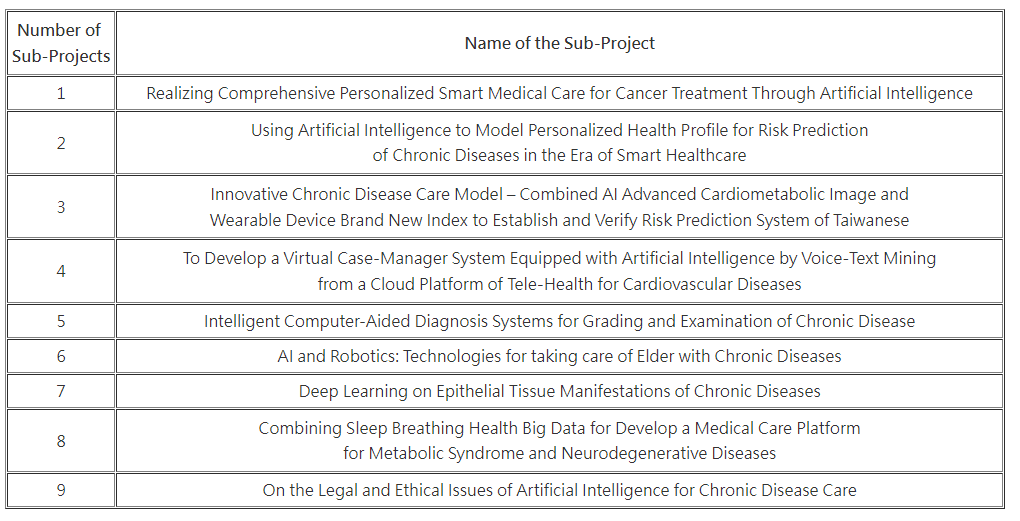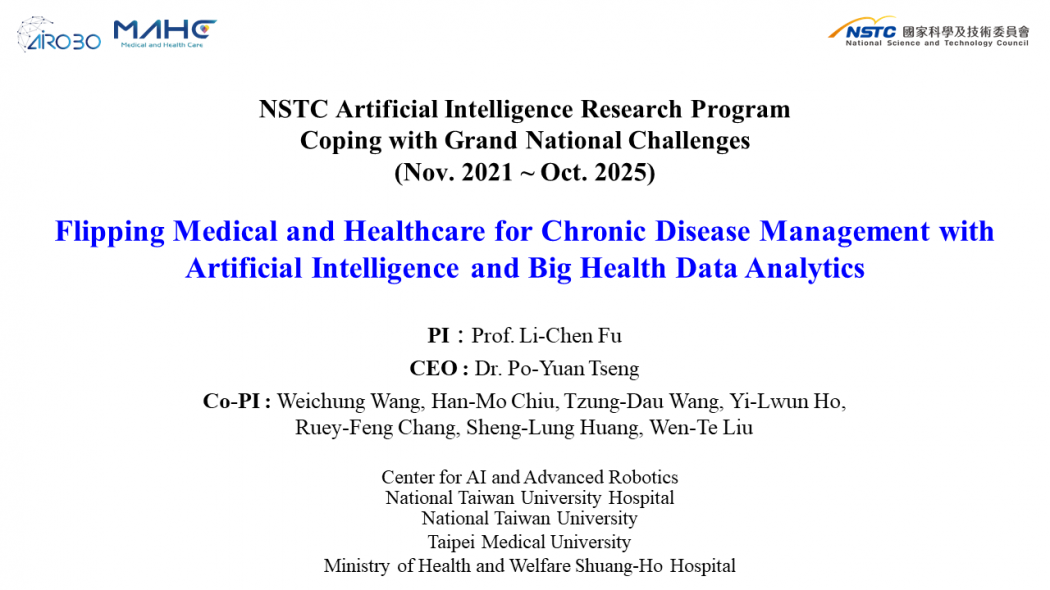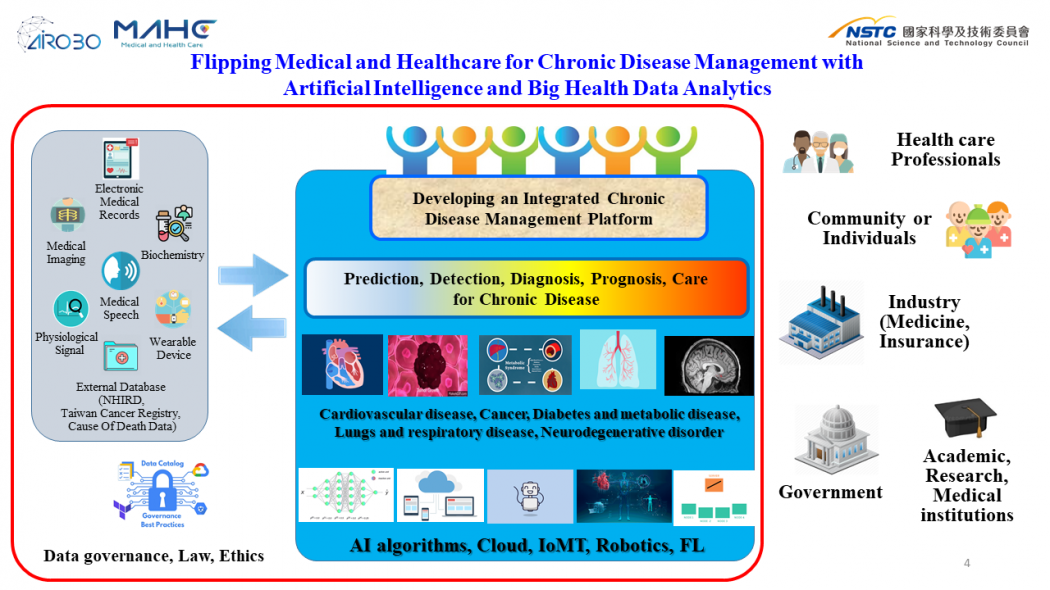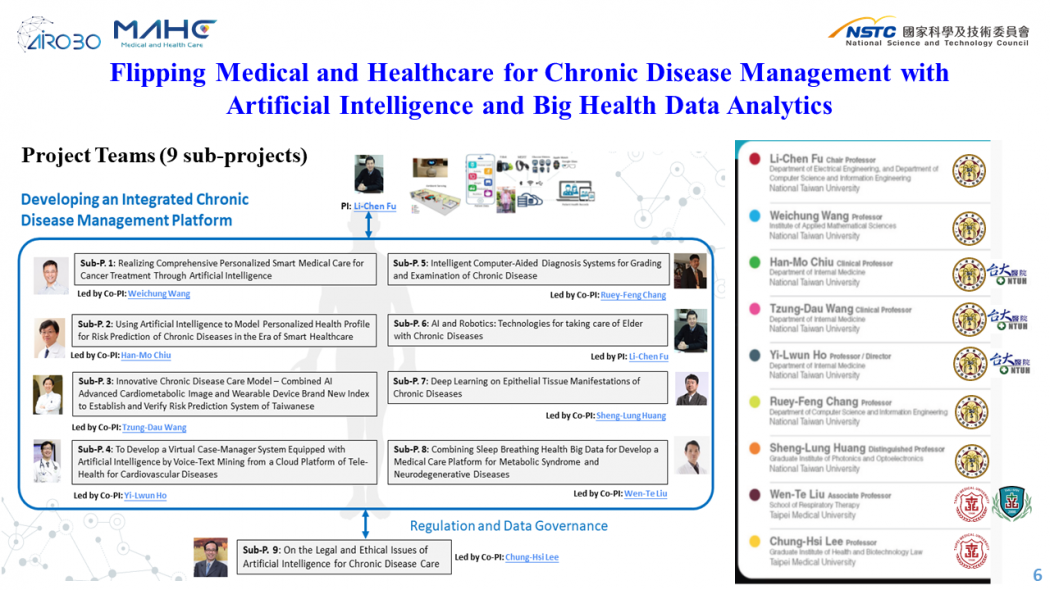History of the Center
2018 - 2021 Phase I Project
After taking office in February 2017, the previous director of the National Science and Technology Council (NSTC; originally known as the Ministry of Science and Technology, MOST), Dr. Liang-Gee Chen, has vigorously promoted the artificial intelligence (AI) strategy under the “A Grand Strategy for a Small Country” strategy. In order to create an innovative AI ecosystem, the NSTC has planned to build world-class AI innovation research centers to achieve the goals of researching and developing cutting-edge technologies, cultivating leaders, and enhancing the potential of commercialization of research and development results. After reviewing the public center research projects, four AI Innovation Research Centers were established in Taiwan on January 1, 2018. “AINTU” stands for the Joint Research Center for AI Technology and All Vista Healthcare, or the Artificial Intelligence Center at National Taiwan University, and is one of the four AI Innovation Research Centers established by the NSTC of Taiwan.
The mission of the All Vista Healthcare Sub-Center (MAHC) is to integrate our research projects and become an international research center utilizing cross disciplinary, cross-unit and international collaboration. We aim to lead domestic biomedicine teams to escalate the level of domestic biomedical technology, and benefit the health and wellbeing of the whole country; establishing an international research cluster of AI and biomedical practitioners, to promote Taiwan's major medical achievements to the world; and build ample biomedical databases, as well as basis for cross-domain collaborations to serve as bridge for international and industry-academia collaboration.
Please visit: https://homepage.ntu.edu.tw/~tosyc
to take a look at our Annual Report of 2020.
2022 - Phase II Project : Flipping Medical and Healthcare for Chronic Disease Management with
Artificial Intelligence and Big Health Data Analytics
Chronic disease has always been an important medical and healthcare issue that receives worldwide attention. Among the ten leading causes of death, there are 70 to 80% of death were caused by chronic diseases, including cardiovascular diseases, cancer, diabetes, dementia and kidney diseases, which occupy huge medical expenses. Moreover, as the COVID-19 pandemic burst in 2020, medical care of chronic disease is now facing an even greater challenge. Thus, with the intensifying worldwide health crisis, the World Health Organization (WHO) has issued an appeal that all countries should prepare adaptive strategies on medical care of chronic disease in the post-pandemic era.
This project aims to apply Artificial Intelligence (AI) and big health data analytics on building integrated medical and healthcare platform for chronic disease. Within this project, there are 9 top-notch research teams which will be focusing on common chronic diseases in Taiwan (including: cardiovascular diseases, cancer, metabolic diseases, respiratory diseases, and neurodegenerative diseases), and developing the following 3 platforms:
(1) prevention and prediction of chronic disease
(2) detection, diagnosis and prognosis of chronic disease
(3) medical care of chronic disease.
With the platforms, heterogeneous data including electronic medical record, medical image, physiological‑signal, biochemistry, data of wearable device, environmental data, medical verbal content, bioinformatics, and governmental data like Taiwan’s national health insurance data and nationwide cancer registry, will be analyzed with technologies including AI, IoMT, cloud computing, robotics and federated learning, and being applied in medical care institutions, communities, or home environments. And we also expect to collaborate with medical care and insurance industries to expand the application field. In addition, strategies on data governance, ethics and rules of law are also carefully considered as this project is related to highly-sensitive medical health data, application of AI technology, and field application (with possible development on software as a medical device).
List of Sub-Projects:
http://mahc.ntu.edu.tw/en/research.php?g=7



